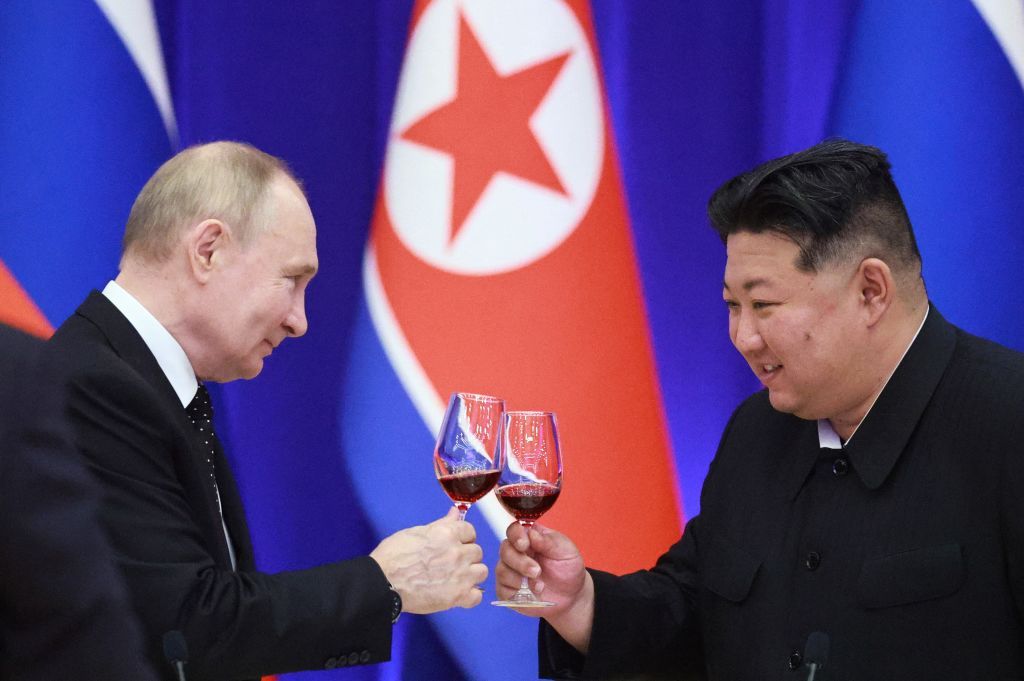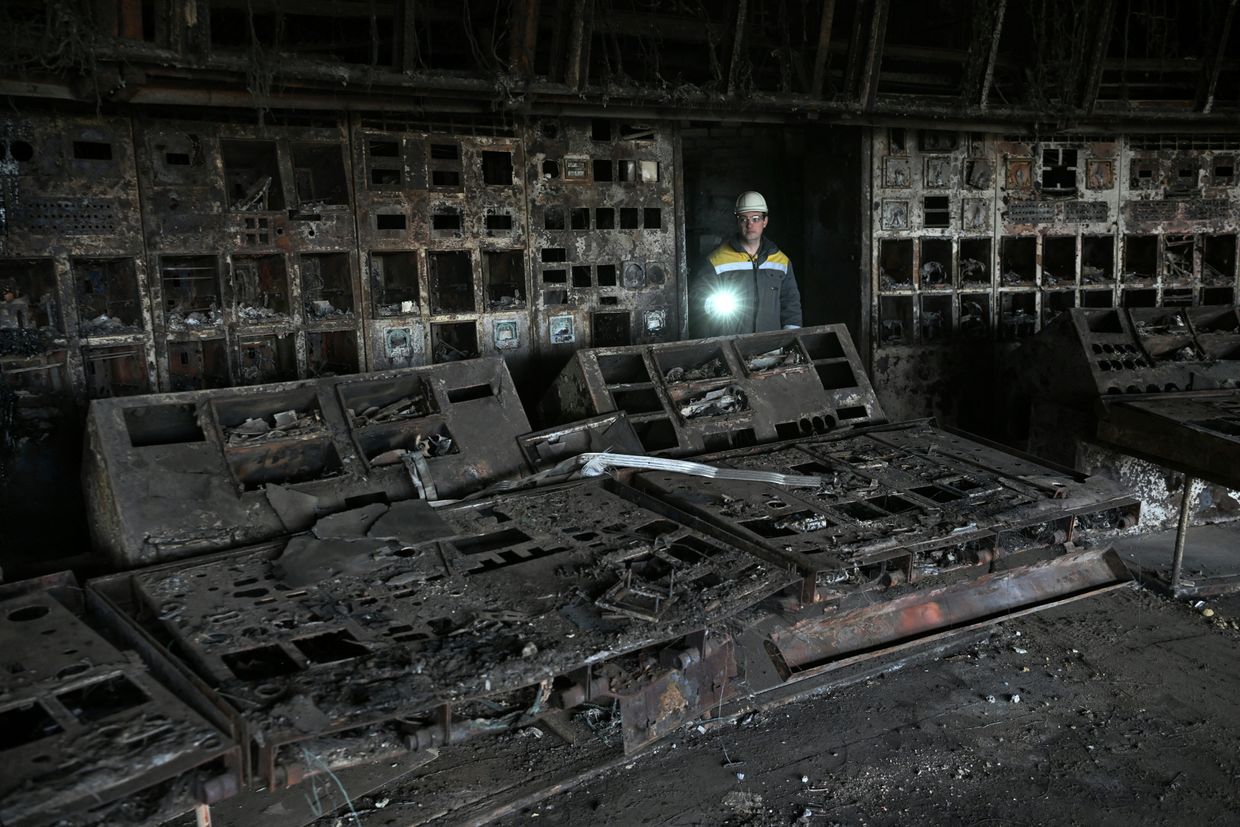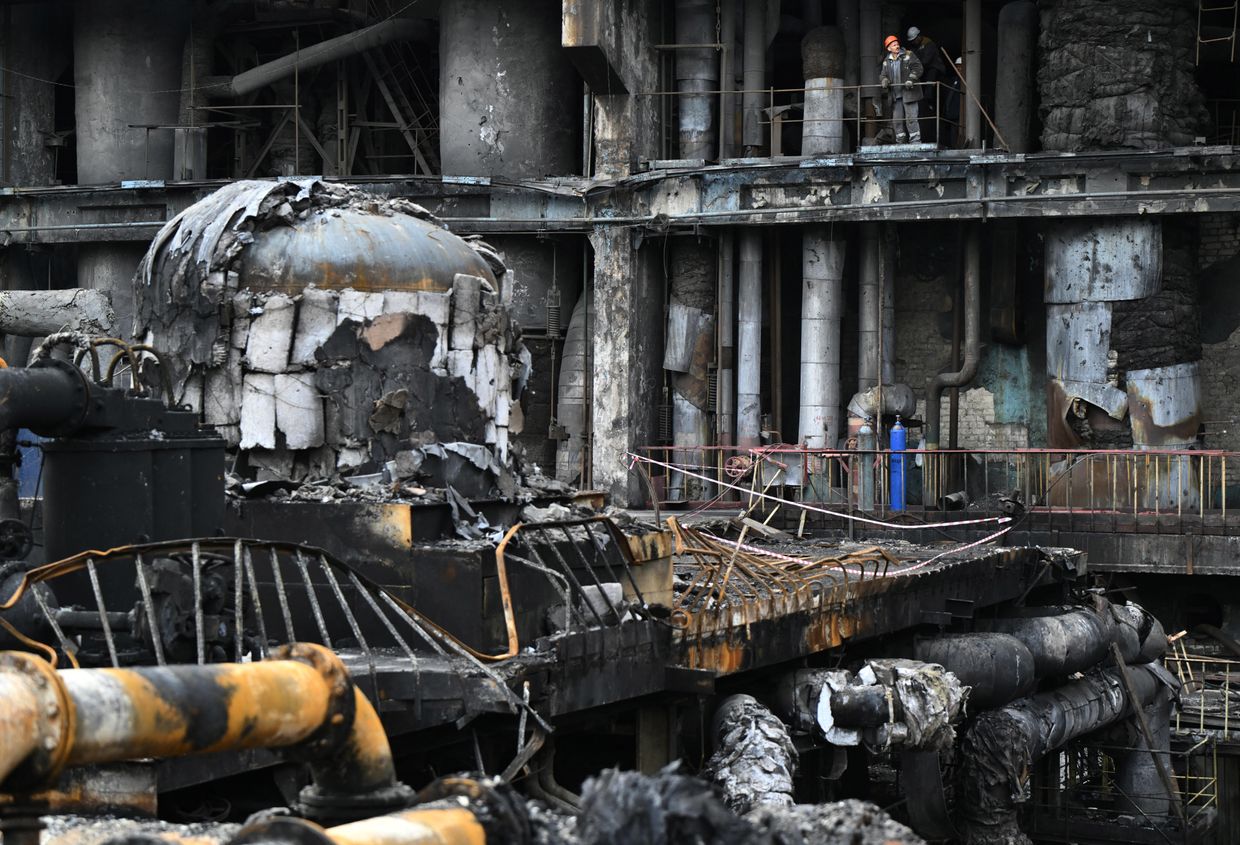Editor’s Note: This article was published by the twice-weekly newsletter “The Counteroffensive with Tim Mak” on June 27, 2024, and has been re-published by the Kyiv Independent with permission. To subscribe to "The Counteroffensive," click here.

When the explosions hit the thermal power plant, senior machinist Ihor* was at home, preparing for his shift. Living close to the plant, he heard the explosions clearly. Unlike most, Ihor moved toward the explosions.
"One day you come in and see everything destroyed, and realize that all your work is gone,” said Ihor, who has worked at the plant for 24 years. “It's Armageddon here. It shouldn't be like this. At that moment, all you feel is anger at the enemy," he said.
Russia began heavily bombarding Ukraine's energy infrastructure in fall 2022, seeking to disrupt morale – a potential war crime against civilians under international law. The situation has worsened since then, with nationwide energy shortages and rolling blackouts following further attacks. Over 80% of Ukraine's energy sector is now damaged. Workers like Ihor are the ones standing between Ukrainians and darkness.
Ihor said that while employees are regularly trained for emergencies, the scale of the Russian attacks made it impossible to follow standard procedures.

"The situation was so unusual that it was impossible to follow the usual algorithm of actions. You had to use your own logic, where you had to involve other employees from other departments and do a common job together," Ihor said.
Despite the chaos, the plant workers couldn’t run away. "You have to go to the epicenter of the event. You have to fix it," Ihor added.
DTEK is one of Ukraine's largest private energy investors. The Counteroffensive visited one of its bombed-out thermal power plants (TPP), whose location remains undisclosed for security reasons.
Despite being in a small town, the plant’s scale is impressive – visible from far away due to its towering pipes. A TPP generates electricity by burning fuel. They also circulate water through pipes to produce steam that turns turbines and generates electricity.
While the TPP appears intact from the outside, the situation is radically different on the inside. The smell of long-burning fires permeates the air, making it hard to breathe. To the naked eye, around half of the plant has been destroyed by several Russian strikes, leaving everything blackened by fire and littered with ash and missile wreckage.
The first attack on the TPP occurred in late 2022, and while some equipment was restored with Western aid, another attack in May 2024 caused severe damage. Russia has carried out over 180 attacks on Ukraine's energy infrastructure since the full-scale invasion started, targeting DTEK sites at least seven times.
Andrii, a senior specialist in the boiler and turbine department, arrived at the plant five to 10 minutes after a strike last month. Driven by adrenaline and fear, he rushed to help his colleagues.
"There was so much adrenaline, and fear, and my heart was pounding. I realized that it was still early and I had to go and save (his colleagues)," Andrii said, noting that there around a dozen people on shift at the time.
"But literally immediately, the second alarm sounded and we were informed that Kinzhal missiles were flying. We all had to hide in the bomb shelter. As soon as we got an indication that the danger had passed, that the missiles were not flying towards us, we quickly returned here and continued to extinguish the fire," Andrii said.
After controlling the flames, the extent of the destruction became clear. The site remains littered with equipment fragments and missile debris. Despite the devastation, the work never stops, with teams working day and night. The latest attack left the town without hot water for months.
"People often stop me on the street and ask me how long will it take. Well, to be honest, it's hard to say when we'll be able to do it after something like this. We are working on it," Andrii said.
The attack affected not only the TPP and town residents but also animals on the plant’s property. Some were rescued from the rubble, treated, and brought back to the plant.
Across Ukraine, energy workers are fighting to keep the lights on. Andrii Medyna from Kyiv considers his role crucial. On May 31, missile debris destroyed a transformer substation in Kyiv. While the substation looks small – around 2.5 by 2.5 meters – the attack cut power to over 600 homes and businesses. The substation is located near residential buildings – it's a matter of luck that the debris didn't hit them.
After the attack, Andrii and his team immediately headed to the site. However, getting there was challenging. The State Emergency Service of Ukraine first had to clear the debris and ensure the area was safe. Andrii and the other energy engineers had to wait several hours before they were allowed to proceed to the site.
To resolve the issue, they replaced the entire structure, and within an hour, electricity was restored to the homes. The DTEK team took 12 hours to fully restore power. While this may seem quick, it’s important to remember that this was just a small substation. Restoring the full operation of the TPPs will take significantly longer.

Western partners are aiding in restoring Ukraine's power system via the Ukrainian government. It will take at least a year to partially restore the energy system, assuming no new attacks occur. As the war continues, so will the attacks.
The power engineers we spoke to predict that this coming winter will be the hardest since Ukraine's independence. Andrii advises Ukrainians to prepare by buying batteries or moving to detached homes, as generators aren’t feasible for multi-story buildings.
"My family bought warm clothes, bedding, and gas cylinders so that we could quickly heat water and fast food. My family will survive for a week or two," Andrii said hopefully.
Back at the TPP, Ihor is determined to keep working, too: "I realize that my work is not just the work of a senior driver. I see myself as something more in this country because I provide welfare for people," he said.
Editor’s Note: The opinions expressed in the op-ed section are those of the authors and do not purport to reflect the views of the Kyiv Independent.















